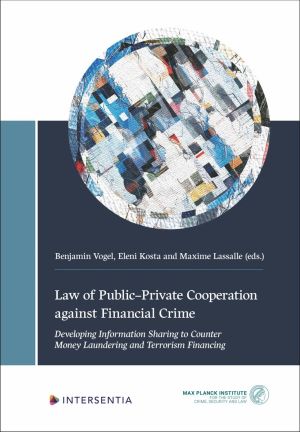We are now closed for the Christmas and New Year period, returning on Monday 5th January 2026. Orders placed during this time will be processed upon our return on 5th January.

For several decades, banks and other financial service providers have been required to monitor the activities of their customers in order to detect and prevent crime. This ‘delegated law enforcement’ has yielded some success, but its practical limits have become glaringly apparent, as the private sector is struggling to effectively perform this task. There is, therefore, growing international consensus that closer public–private cooperation is needed. This will require government authorities to share relevant information with the private sector on a regular basis, to facilitate the detection of criminal abuse of financial services.
However, such cooperation raises profound fundamental rights concerns, because it can put the separation between the public and private spheres—a central paradigm of the rule of law—into question. A pioneering work in a subject that remains largely unaddressed by law and academic debate, the present study brings together the findings of an EU-funded project that developed recommendations for a legal framework for public–private information sharing to prevent, detect and investigate financial crime.
To this end, the book explores the foundations of public–private cooperation against financial crime by adopting a pan-European and interdisciplinary approach. It brings together a comparative analysis of public–private cooperation in criminal procedure law and anti-money laundering law in France, Germany, Italy and Spain; an analysis of the practical design and law of innovative information-sharing mechanisms in the Netherlands and the United Kingdom; an in-depth study of the relevant EU data protection framework; an inquiry into the impact of automated methods of data processing on the applicable legal requirements; an analysis of financial information sharing between the EU and the USA; and a socio-legal study of the practical challenges encountered in public–private cooperation. These various findings are brought together to explain how legislators, competent authorities and the private sector can strengthen public–private cooperation to advance the fight against financial crime and ensure respect for fundamental rights. The recommendations are especially relevant in light of the EU’s recently adopted Framework on Anti-Money Laundering and Countering the Financing of Terrorism, which introduces ‘partnerships for information sharing’ as a new key tool for initiatives addressing financial crime and, in doing so, encourages the participation of competent authorities in such partnerships.